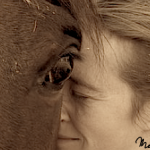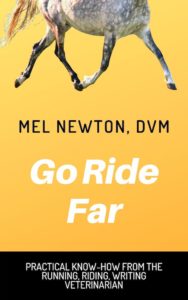Thoughts on Recovery I
| February 25, 2014 | Posted by Melinda under Uncategorized |
It’s fitting that recovery is on my mind, since now 2 days after a race is usually when I’m convinced I will never ever walk normally again.
Doesn’t it seem like a crap shoot what’s sore after a work out?
I mean, I know that theoretically the cycle is that muscles are stressed and then repaired and made stronger…..but sometimes it feels like someone throws darts at my body after athletic events to decide what is sore.
For this race it’s my calves, and only my calves.
Not my hamstrings, my glutes, or my quads.
It just doesn’t make sense.
The other weird thing is that sometimes what hurts the most after the race, isn’t what actually ends up hurting due to DOMS (delayed onset muscle soreness) on day 1 or 2 after event. For this race, my calves hurt after the race, on day 1, AND today (day 2).
I swear it seems completely random.
Maybe it’s a game of “YOU are the weakest link”? For my next race I’ll have super conditioned calves and it will be some other major muscle group’s turn to be the weakest link and cause inordinate amusement for my friends watching me transition from sitting to walking.
Lately I’ve spent some time in chapter 14 in the Running of Science book which discusses the philosophy of training.
There’s so much information in this book that is helping understand:
1. why what I’ve done in the past with myself and Farley has worked (or not)
2. some new ways of thinking about concepts I thought were simple and self evident
3. some very practical ways to develop future training plans for myself and Farley as individual athletes that uniquely address our strengths and weaknesses.
Since there’s no way I can even start to sort through my mind all that’s jumbled around right now, this is more of a brainstorming post of some of the more interesting things that caught my attention on the subject of recovery.
Let’s talk about recovery.
We are going to start with a simple fact. Stimulus is applied during a work out to get adaptation.
During that process of applying stimulation running until I want to puke (I try very hard to not actually puke since I find that process rather unpleasant) the following things occur (according to Magness’s book):
– Mechanical damage to the muscles
– Depletion of fuel sources
– Psychological/emotional stress.
****Adaption to the stimulus occurs if there’s proper recovery and nutrition after the stimulus.
I understand that the recovery period is the time that the body is healing itself and preparing itself to better meet the future challenge. Just by listening to my body, I also understand the amount of recovery that is needed for a certain stimulus/workout depends on how much stress was experienced during that amount of stimulus. Recovery is linked to stimulus.
Psychological stress?
What I hadn’t realized is that the recovery period deals with much more than sore muscles and rebuilding elyte/calorie/glycogen supplies.
I had thought of the psychological-emotional stress element in endurance or running as something that mostly affected me during competitions – usually in a negative way. In my Fourmidable race report I talked about some of the very psychological draining athletic experiences I had. I had to dive so deep to find a way forward in each of those situations, that I couldn’t get near “that place” again for a long time. In some cruel joke of the universe, my clinic schedule is makes the Virginia City 100 nigh impossible. However the weekend of Tevis is very doable. I actually wasn’t planning on doing Tevis for at least another 2 years. Sure, I want to do another 100 this year, but the thought of going back to Tevis so soon after last year makes me feel physical ill.
It turns out that the psychological element of a particular stimulus has it’s own recovery time JUST LIKE MUSCLES. If you over do it physically, your muscles are REALLY sore for a while. If you have to dig too deep into your psyche to “gut something out”, or if you have to do something that emotionally stresses you out (like if you hate a particular type of workout but have to do it), you have to give that part of your “body” time to recover.
This excites me for 2 reasons.
1. The mental component a very real component of recovery.
2. If it’s included as part of the normal considerations of recovery….that must mean that to some degree we can train our emotional state/response just like we train muscles, and our body to utilize fuel.
By far the mental game is the hardest part of endurance for me. I’m good for about 3-4 hours, and then my brain is just ready to be done – which definitely has physical manifestations too.
I can count the number of rides on one hand that I actually enjoyed the majority of the ride (I love the excitement pre ride and I love post ride and I love preparing for a ride…it’s just the actual ride…..). Of the few rides that I actually ENJOYED most of the miles and spending the time with my horse – most last minute decisions. I feel immense stress before/during a ride about getting the horse through the ride in good shape and a last minute decision goes a long ways towards not allowing that part of the detrimental mental game to occur.
I can point to some early experiences of mine in the sport of endurance that have probably shaped how my brain is responding during a ride. But more important than the WHY, reading this book made me realize I haven’t done anything to try and condition my mental game beyond going to rides and gritting my teeth – even while spending a lot of time on the physical conditioning and body fuel utilization part of conditioning outside of rides. I’ve ignored it thinking it wasn’t important beyond the ability to “make” myself do what I needed to do to get through a ride.
Magness says that stress is stress. The hormones that are produced in both physical AND emotional stress have their impact on the brain and both must be considered when considering how much “stress” the athlete experienced during a workout. “In running we are keenly aware of the physical stress we are placing, but we need to realize that the psychological or emotional stress contributes to the total stress load“.
If I can learn how to train and recover the psychological component of my endurance rides – I bet I would be having a lot more fun at rides.
But what about the horse?
Let’s take another look at that list of 3 things that a run does:
– Mechanical damage to the muscles
– Depletion of fuel sources
– Psychological/emotional stress.
I would argue that every single one of these 3 things occurs when we condition our horses, and when we take them to rides.
Working with Tig (the young arab I’m riding for the next couple months) has shown me how HUGE the psychological component is. In our longer rides I ALWAYS hit the emotional stress wall before I get even close to any real muscle conditioning or depletion of fuel sources.
Looking back at getting Farley to our first 100 mile completion, I’m as sure as you can be with only ancedotal experience….that it was more a physiological/emotional stress barrier for her as we jumped from longer distance to longer distance. She often had the PHYSICAL conditioning to do it, but just because it’s mental doesn’t mean that the barrier isn’t any less real than a physical or fuel barrier. She needed to do a 65ish mile ride 2x before she was ready to handle the full 100.
OK folks, here’s the deal. This post ended up being much much MUCH longer than I anticipated. I have yet another test tomorrow afternoon, a surgery report, and a much ignored dog who really should be walked tonight before it RAINS for the next 4 days. So, we will be continuing this conversation in a future post.
Because I’m sure only a tiny fraction of my readers are as fascinated with exercise physiology as I am, I’m going to summarize this rambling 1400 word post into one sentence that will segway nicely into the next post: The major point in listing the 3 things (muscle damange, fuel depletion, psychological/emotional stress) consequences of running is this: you need to repair or refill them to capacity before you can fully utilize them again.











So, so true. I could feel it when I hit “the wall” and was going further than I’d ever gone before – fortunately, Dixie was back on common trail and she *knew* she was headed home, so she was still game. But it took me this huge mental effort to get in front and try to lead, and a different kind of mental effort to trot in the dark, and when she stumbled that last time going downhill? I was done, at least with the downhill night trotting.
You are not a soul floating around driving a meatsuit. You ARE your body. Your thoughts are largely chemical reactions to stuff happening to the meatsuit. You have to respect it.
Hannah – I’m not sure what is out there on conditioning the psyche to “go into the well” and dig deep as it relates endurance events. I haven’t seen anything looking at horses or at riders, but there’s probably something out there for runners. In the past I’ve always left the “psychology of running” type stuff for other people. But I think you are right – this is different. This seems more fundemental. And it seems really critical in endurance, especially as you get to distances like a 100. Magness talks about willpower, which is closely related to mental fatigue and willpower has been well documented as declining over the course of a day and really what is endurance if it isn’t will power? And how best to execute the will power knowing that it does decline – and like so many things related to body and psyche, it too declines with use and needs a “refill”.
Liz – I’m going to get to it in another post, but Magness actually offers suggestions of how to stress our psyche during noncompetition work outs. Stuff like making yourself do simple arithmitic during runs!
Very interesting and thought-provoking, as always! The mental game is SO important and recovery of that is even more important. It was really good to read it in the manner you presented it, too. The mental aspect is the hardest for me to work through. The other stuff is logical and easy to dole out in charts and schedules; the mental game though? Ack. Only time and experience can build that!
That is REALLY interesting about the emotional stress. Makes a ton of sense. My immediate reaction was, “Oh, there is all kinds of sports psychology stuff out there!” but of course most (all?) of that is targeted at acute situations – reducing stress and increasing functionality for the length of a dressage test or a cross-country course, which isn’t at all what you’re talking about here. Or at training/preparation, which is closer but nonidentical in pretty critical ways. I can’t believe nobody’s looked at specifically long-duration events…must make mental note to research in copious spare time!
Realized it was unclear when I was talking about Tig. I’m talking about her mental wall, not mine.